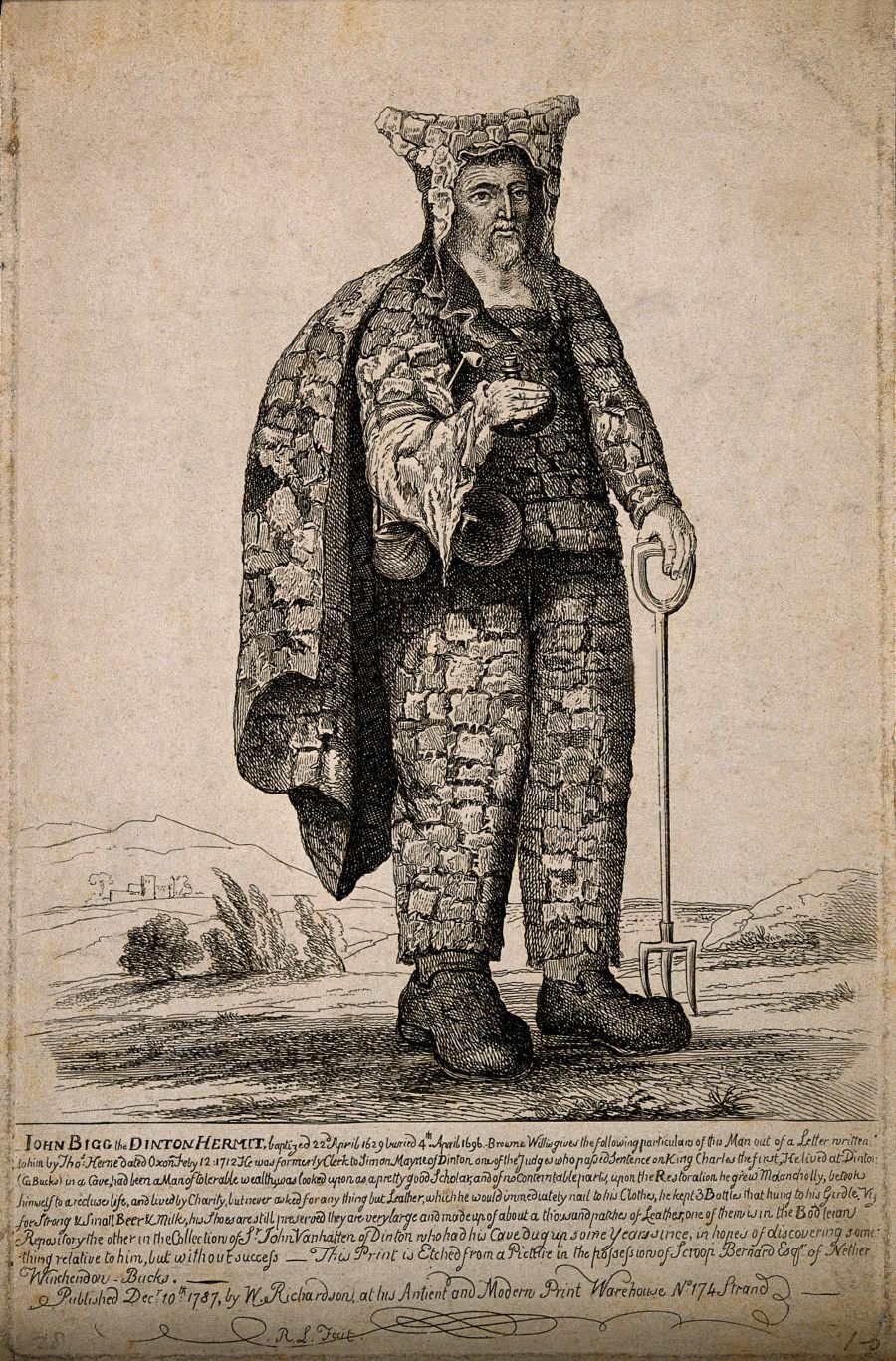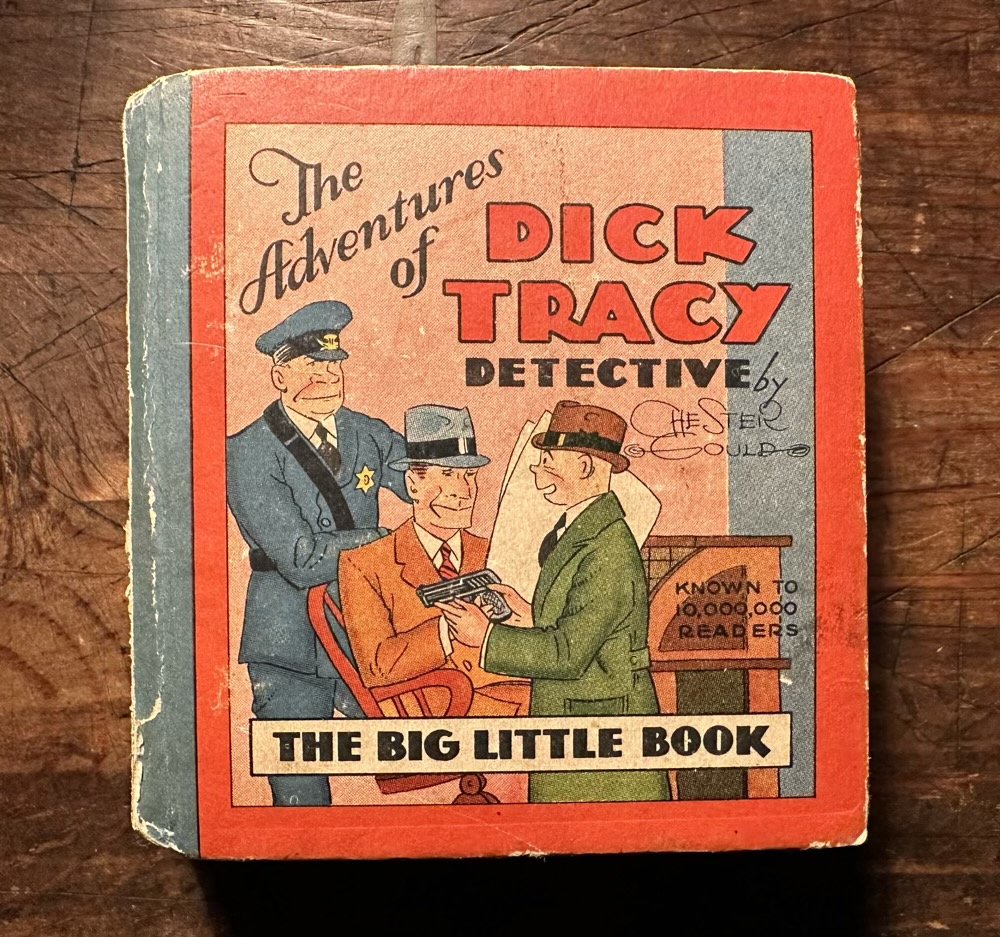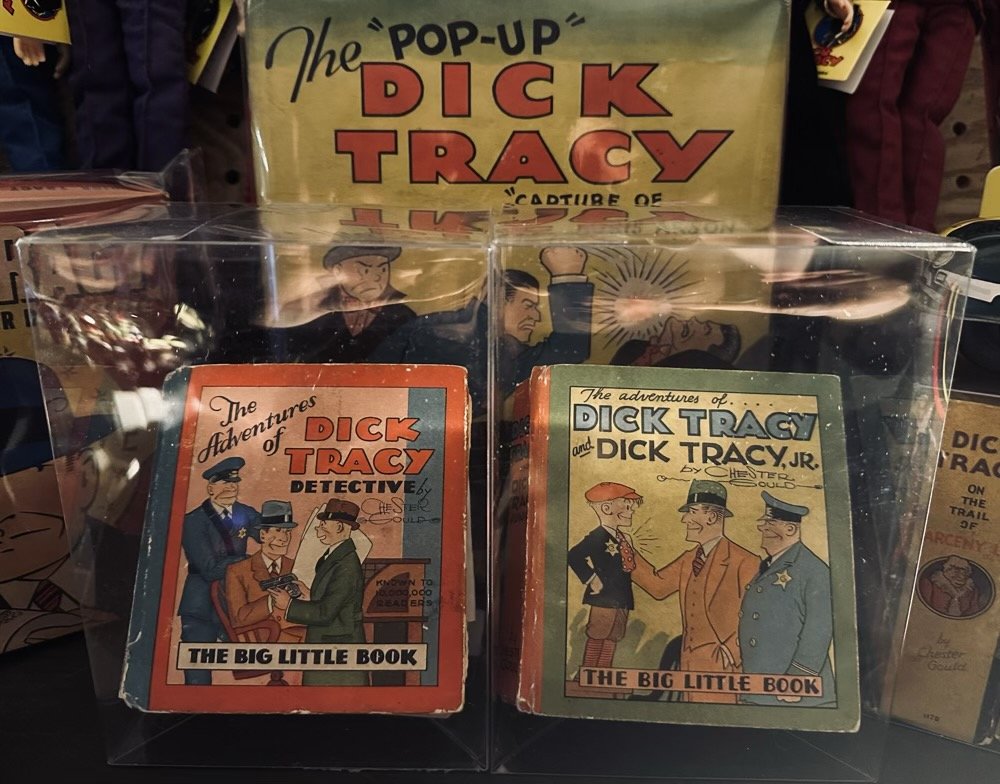To put this book's place in history in perspective: Dick Tracy was only a year old (and "known to 10,000,000 readers," as the cover states); FDR had been elected in a landslide but had yet to be inaugurated (for the first of four times); Superman was six years away from making his debut, Batman seven; Tod and Bela and James and Boris had, only a year earlier, shepherded Dracula and Frankenstein's monster into cinematic history; and both of my grandfathers were six, a little younger than I was when they collectively birthed this particular obsession in me; to possess the first – and now, the second DICK TRACY BLB adventure (that pair is below) – is, to put it mildly, a big fucking deal for me.
This obsession with Big Little Books goes further than enjoying the format, a shared connection to my grandfathers, and a desire to possess: I have a far deeper love of what would be considered disposable media - pulps, BLBs, old comics – narrative delivery systems that were not meant to survive consumption and possession, either through quality, life, historical events, or parental intervention – than the purported treasures of more recent years: I'm still noodling about in the notion, unpacking it, but I've been thinking that these disposable narrative delivery systems of yesterday provide a key for new, sustainable narrative delivery systems and storytelling forms today: indeed, they're already shaping how I approach writing and the delivery systems I choose (handmade zines printed on sugarcane waste paper, etc etc) to contain whatever concoction I send you that passes for a narrative.
But: that these little packages of entertainment did survive – not out of quality of construction or design for posterity but of a concerted effort on the part of someone, be it the first owner who treasured them enough to enable a nearly 100-year-old 10-cent book to endure the Great Depression, WWII, and every historical event between then and now – to spend the next phase of their lives in Funko Pop plastic cases on my shelves here in The Paintshop, my sancutary in the middle of a fuckall nowhere highway afterthought/speedtrap 'burg in Ohio, is nothing short of amazing: by all accounts, they shouldn't be here. Yet here they are:


